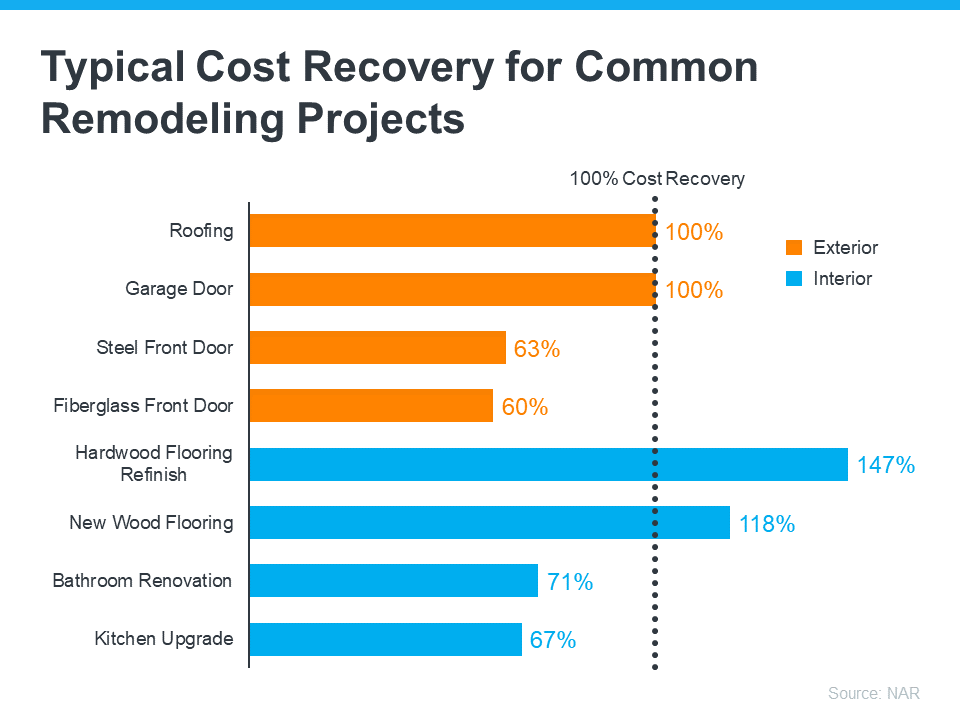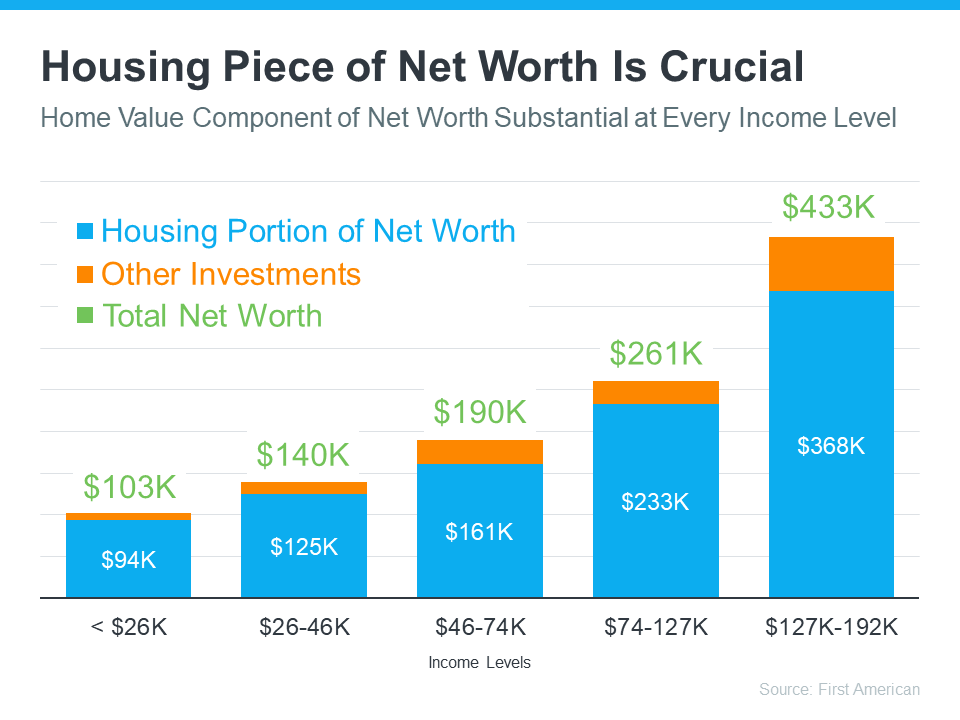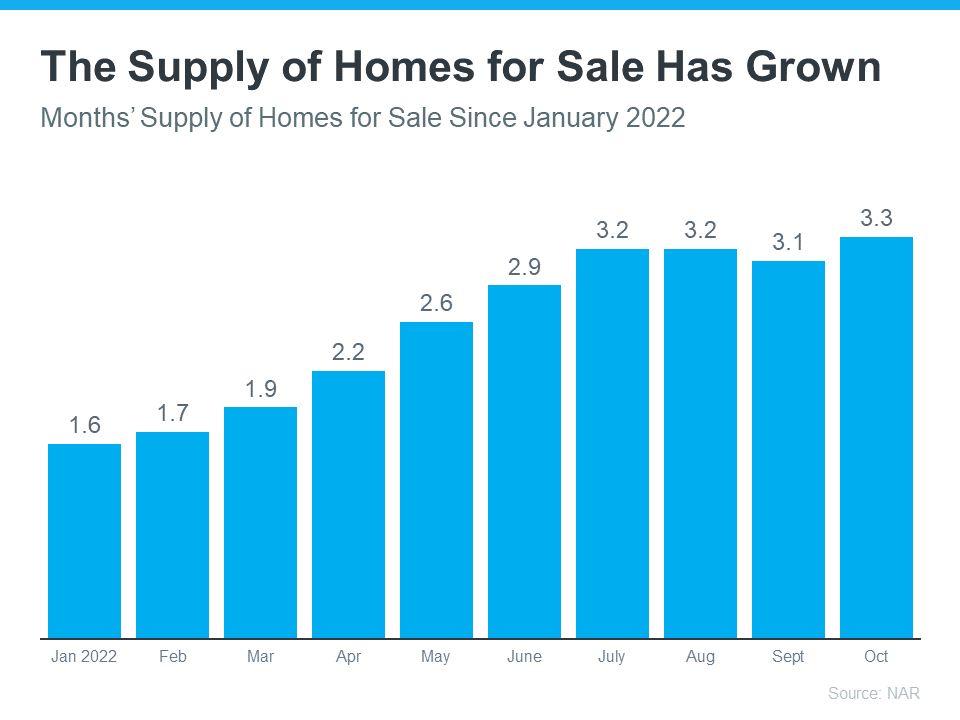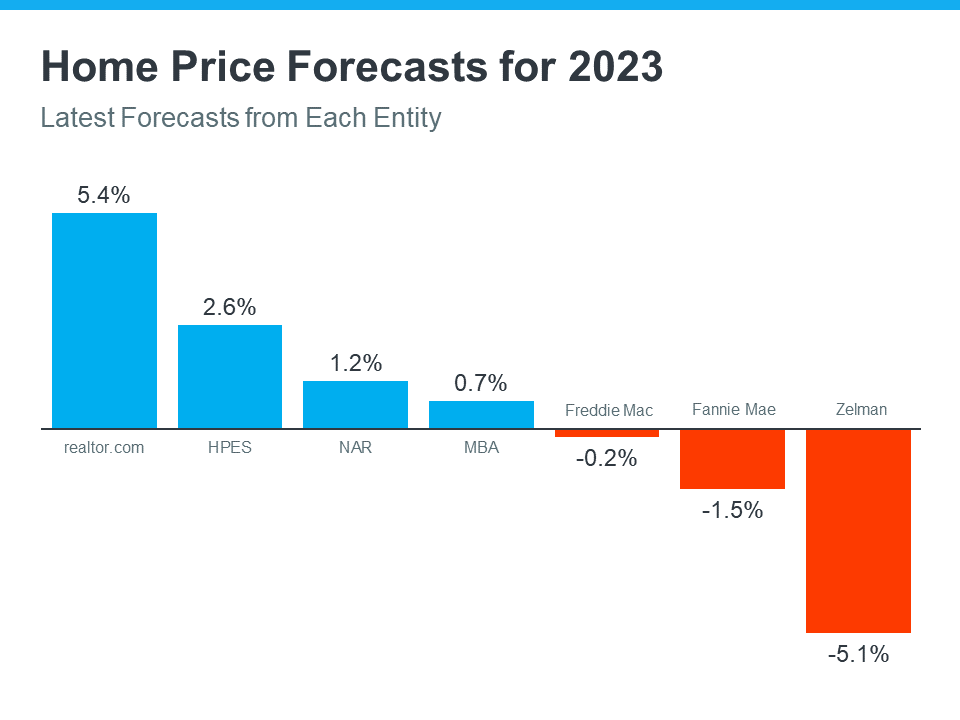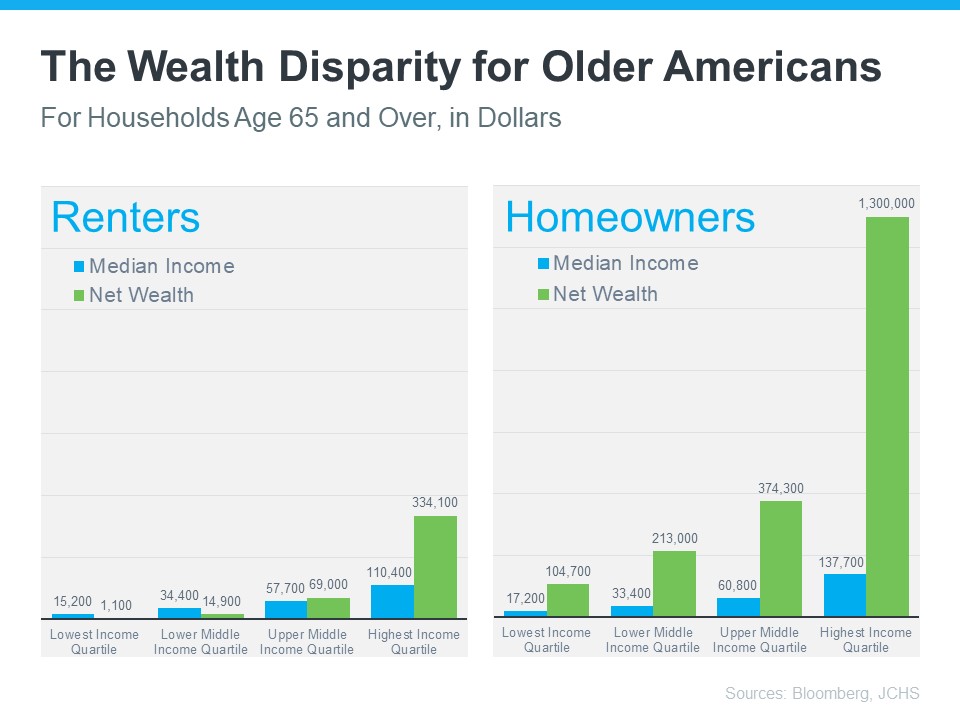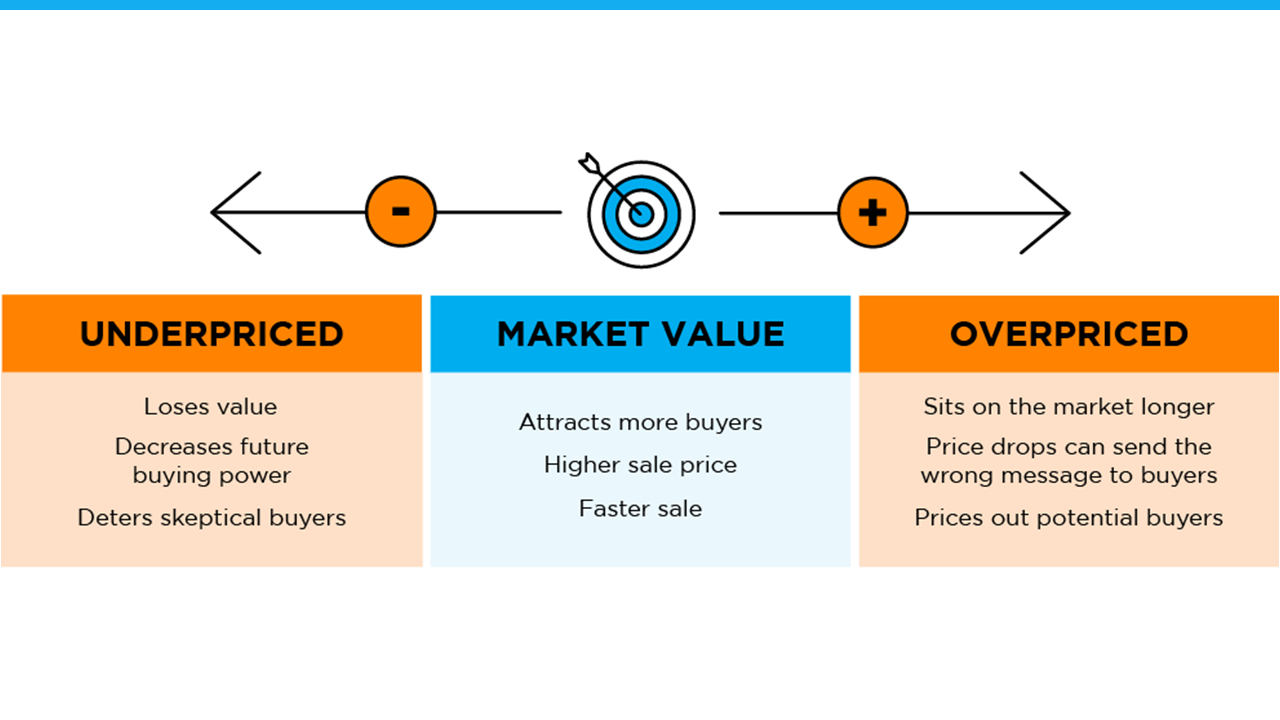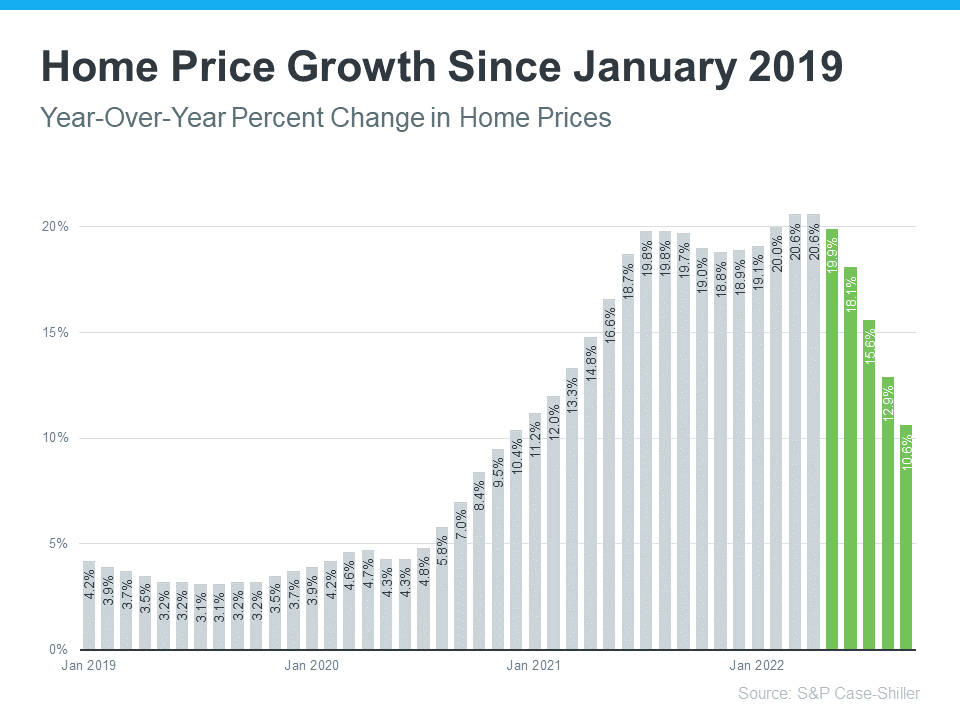Want To Sell Your House? Price It Right.

Last year, the housing market slowed down in response to higher mortgage rates, and that had an impact on home prices. If you’re thinking of selling your house soon, that means you’ll want to adjust your expectations accordingly. As realtor.com explains:
“. . . some of the more prominent pandemic trends have changed, so sellers might wish to adjust accordingly to get the best deal possible.”
In a more moderate market, how you price your house will make a big difference to not only your bottom line, but to how quickly your house could sell. And the reality is, homes priced right are still selling in today’s market.
Why Pricing Your House Appropriately Matters
Especially today, your asking price sends a message to potential buyers.
If it’s priced too low, you may leave money on the table or discourage buyers who may see a lower-than-expected price tag and wonder if that means something is wrong with the home.
If it’s priced too high, you run the risk of deterring buyers. When that happens, you may have to lower the price to try to reignite interest in your house when it sits on the market for a while. But be aware that a price drop can be seen as a red flag by some buyers who will wonder what that means about the home.
To avoid either headache, price it right from the start. A real estate professional knows how to determine that ideal asking price. They balance the value of homes in your neighborhood, current market trends, buyer demand, the condition of your house, and more to find the right price. This helps lead to stronger offers and a greater likelihood your house will sell quickly.
The visual below helps summarize the impact your asking price can have:
Bottom Line
Homes that are priced at current market value are still selling. To make sure you price your house appropriately, maximize your sales potential, and minimize your hassle, let’s connect.
Basics of building a deck: Wood decking varieties

If you’re interested in the basics of building a deck, it’s important to familiarize yourself with the decking materials available. There are multiple options including vinyl, composite and natural wood. However, if you’re going with natural wood for your deck, you also have different options to choose from.
Here are the main types of wood used for deck building:
Cedar
Cedar is a classic decking material. Cedar’s popularity has endured for decades because it’s durable and resistant to moisture damage. Though cedar is technically a soft wood, it’s less susceptible to insects than hardwoods. Cedar is also popular for its appearance for those who prefer the natural look of wood decking. However, it’s easy to stain, giving you plenty of options for the perfect aesthetic.
Redwood
Redwood is another soft wood popular for outdoor decks. It’s similar to cedar in its durability against moisture, rot and insect damage. While the lifespan of a redwood deck is about the same as cedar, redwood requires regular staining every few years to maintain its appearance and finish.
Redwood is popular in deck construction across the country, particularly on the West coast, where it is widely available for lower cost.
Pressure treated wood (PT)
Pressure treated wood, also called PT wood, is a less expensive option for decking compared to cedar and redwood. It’s widely available and suitable for all climates. Pressure treated wood is extremely durable and will last decades with relatively low maintenance. However, it’s a good idea to pressure wash and stain every few years.
Overall, PT wood is the most economical option and the easiest to buy, regardless of where you’re building your deck.
There are other options for wood decking materials, but these are the most popular options to know. Keep these different varieties of wood in mind when planning a deck for your outdoor space.
What Every Seller Should Know About Home Prices

If you’re trying to decide whether or not to sell your house, recent headlines about home prices may be top of mind. And if those stories have you wondering what that means for your home’s value, here’s what you really need to know.
What’s Really Happening with Home Prices?
It’s possible you’ve seen news stories mentioning a drop in home values or home price depreciation, but it’s important to remember those headlines are designed to make a big impression in just a few words. But what headlines aren’t always great at is painting the full picture.
While home prices are down slightly month-over-month in some markets, it’s also true that home values are up nationally on a year-over-year basis. The graph below uses the latest data from S&P Case-Shiller to help tell the story of what’s actually happening in the housing market today:
As the graph shows, it’s true home price growth has moderated in recent months (shown in green) as buyer demand has pulled back in response to higher mortgage rates. This is what the headlines are drawing attention to today.
But what’s important to notice is the bigger, longer-term picture. While home price growth is moderating month-over-month, the percent of appreciation year-over-year is still well above the home price change we saw during more normal years in the market.
The bars for January 2019 through mid-2020 show home price appreciation around 3-4% a year was more typical (see bars for January 2019 through mid-2020). But even the latest data for this year shows prices have still climbed by roughly 10% over last year.
What Does This Mean for Your Home’s Equity?
While you may not be able to capitalize on the 20% appreciation we saw in early 2022, in most markets your home’s value, on average, is up 10% over last year – and a 10% gain is still dramatic compared to a more normal level of appreciation (3-4%).
The big takeaway? Don’t let the headlines get in the way of your plans to sell. Over the past two years alone, you’ve likely gained a substantial amount of equity in your home as home prices climbed. Even though home price moderation will vary by market moving forward, you can still use the boost your equity got to help power your move.
As Mark Fleming, Chief Economist at First American, says:
“Potential home sellers gained significant amounts of equity over the pandemic, so even as affordability-constrained buyer demand spurs price declines in some markets, potential sellers are unlikely to lose all that they have gained.”
Bottom Line
If you have questions about home prices or how much equity you have in your current home, let’s connect so you have an expert’s advice.

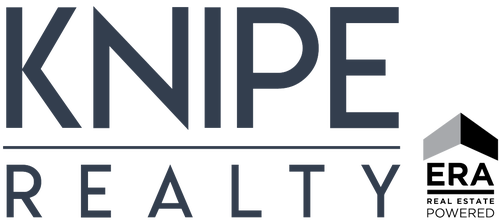
 Facebook
Facebook
 X
X
 Pinterest
Pinterest
 Copy Link
Copy Link


